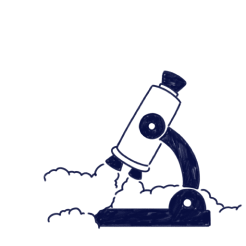A narrow focus on regulatory compliance can hinder organizations from fully embracing and benefiting from quality and operational excellence.
Pharmaceutical companies face numerous challenges when maintaining compliance, fostering innovation, and improving continuously.
It is almost impossible to work in the medical device space without hearing the term ISO 13485. But what is it? And how can you avoid mistakes during scoping and implementation and ensure the continued availability of your products on the market? Tha...
Validation is the process of establishing documented evidence that a process or system is reliable and suitable to fulfill its intended purpose.
Navigating the complexities of FDA inspections is crucial for QA professionals in the pharmaceutical and medical device industries. The stakes are high, with regulatory compliance directly impacting your organization's ability to operate smoothly, av...
The In Vitro Diagnostic Regulation (IVDR) has ushered in a new era of stringent requirements for manufacturers of in vitro diagnostic (IVD) medical devices. Compliance with the regulation is imperative to ensure the safety and efficacy of IVD product...
Most pharma and medical device companies are increasingly adopting electronic Quality Management Systems (eQMS) to streamline their quality management processes. A well-designed quality management system helps you to meet customer satisfaction and re...
Audits and inspections are a part of the quality management lifecycle, they are simply a fact of life in the medical device and pharmaceutical industry. The purpose of an inspection of Quality Management Systems is to ensure your company has establis...
A quality audit is an inseparable part of the life sciences business. This is because healthcare products can have desired as well as undesired effects on patients. Therefore, it is important to manufacture them by following the best practices in the...
As of February 2, 2026, the FDA’s Quality Management System Regulation (QMSR) is officially in force. The FDA’s new Quality Management System Regulation (QMSR) represents the most significant overhaul of U.S. medical device quality requirements in mo...
What is EU GMP Annex 11? EU GMP rules, also known as the ‘EudraLex rules’ govern the medicinal products in the European Union. The EU GMP rules are split into three different parts plus about 20 annexes. ‘The EU GMP Annex 11’ is one of the supplement...
According to the U.S. Food and Drug Administration (FDA), data integrity is the completeness, consistency, and accuracy of data. The agency places a significant emphasis on data integrity in regulated industries such as pharmaceuticals, biotechnology...
